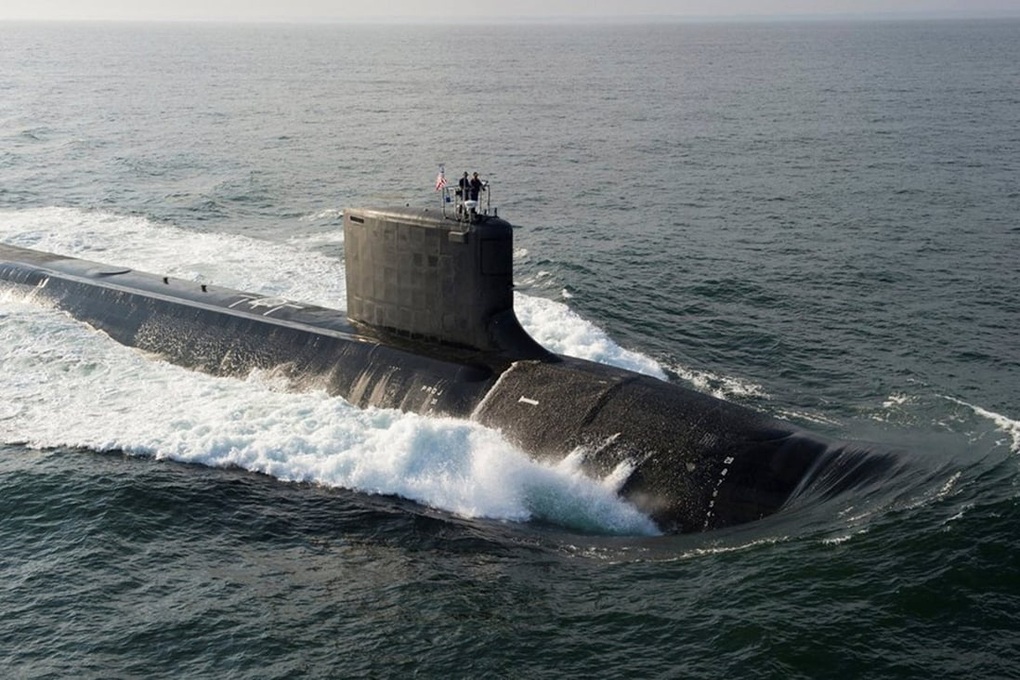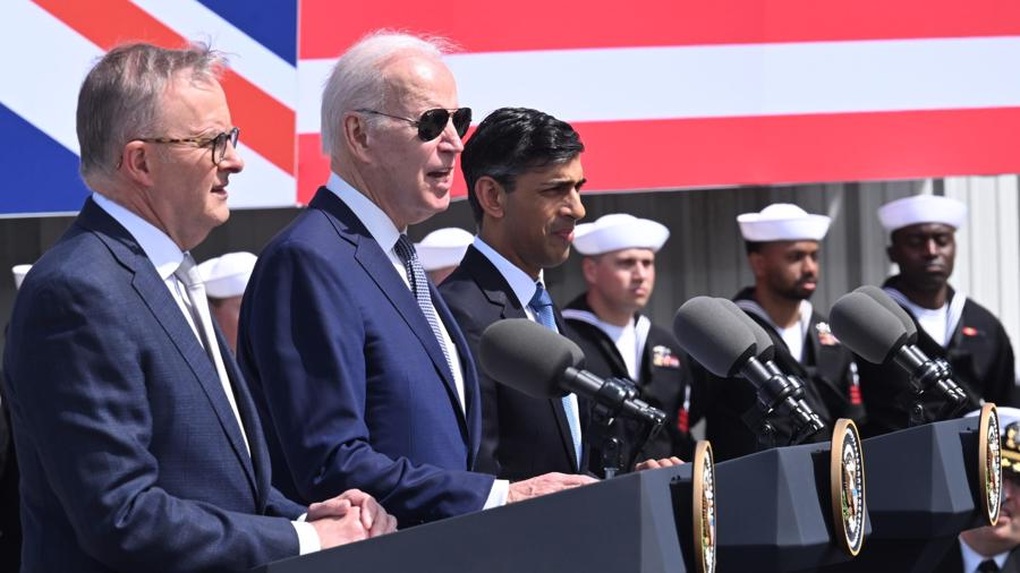(Dan Tri) – Analysts say that Australia will have to make moves to ease security concerns after the Aukus agreement on submarines is announced.
The leaders of Australia, the US and the UK held a press conference to announce the Aukus agreement on March 13 in San Diego, USA (Photo: Getty).
The leaders of the US, UK and Australia on March 13 announced details of an agreement to provide nuclear-powered attack submarines to Australia from the early 2030s, also known as the Aukus agreement.
Speaking at the announcement ceremony taking place at the US naval base in San Diego with Australian Prime Minister Anthony Albanese and British Prime Minister Rishi Sunak, US President Joe Biden called the Aukus cooperation agreement part of the commitment to
Under the agreement, Australia is allowed to buy up to 5 Virginia-class submarines, marking the first time the country owns a nuclear-powered submarine.
While President Biden said he was not worried that Beijing would consider Aukus an `aggressive act`, the Chinese delegation to the United Nations said on March 14 that the submarine deal would pose risks.
And after this agreement was announced, there were concerns about the risk of increasing US-China tensions and triggering an arms race in the region, especially in Southeast Asia.

An American submarine (Illustration photo: Reuters).
Observers say that China is certainly not satisfied with this move and sees this deal as a sign that Australia has become more deeply involved in an alliance to counterbalance Beijing’s influence in the Pacific.
Executive Director of the Lowy Institute in Sydney, Mr. Michael Fullilove, said that the incident will cause many obstacles for cooperation between Australia and China, especially in the context that both are on the road to improving relations after many years of turmoil.
However, Mr. Joshua Bernard Espena, resident member at the Agency for International Security Cooperation and Development headquartered in Manila, Philippines, said that Southeast Asian countries have `carefully welcomed Aukus as a growing reality.`
And he said, the Philippines views this alliance positively, in the context of President Ferdinand Marcos Jnr’s efforts to cooperate closely with the US, Japan, and possibly through a trilateral partnership.
`Aukus can be seen as a blueprint to develop a new Quad group (a four-party security summit including the US, Japan, Australia and India) to strengthen the regional security architecture,`
Quad was launched in 2007, but then paused after Australia withdrew under Prime Minister Kevin Rudd.
Mr Espena said the deal would mean Australia would be able to better monitor underwater communications, while the vessels could also operate underwater longer than diesel-electric submarines.
On March 14, US Assistant Secretary of State for East Asian and Pacific Affairs Daniel Kritenbrink said that Washington has had regular consultations and dialogues about Aukus with many different partners, including foreign partners.
Referring to his visit to Jakarta and Kuala Lumpur last week, Mr. Kritenbrink said he had clearly explained Aukus, with the focus being that Australia sought the Aukus submarine deal only to `better ensure its security strategy.`
`Aukus was born to promote peace, stability, security and prosperity across the Indo-Pacific region, it is a modernization of our existing alliances and partnerships,` he said.
In a statement, Australian Foreign Secretary Penny Wong affirmed that Canberra plans to `dialogue with countries in the region and listen to any such issues`.
Meanwhile, professor Thitinan Pongsudhirak at Chulalongkorn University, Thailand, said that the Aukus agreement helps the Australian navy improve its capacity and `have enough measures` to deal with China.
